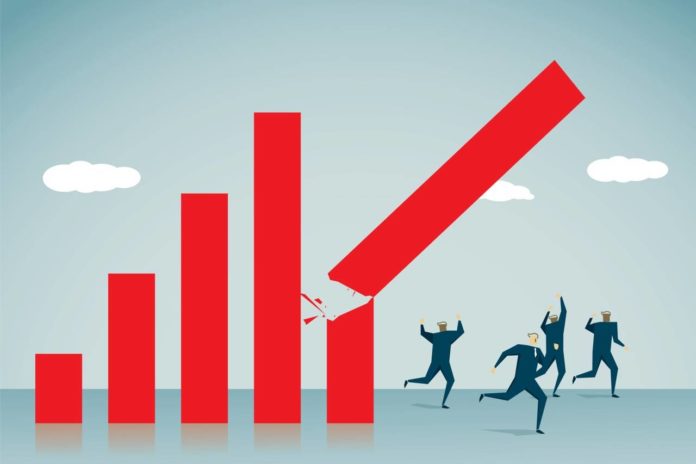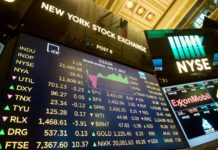How dangerous is the coronavirus to your retirement investments?
I began writing this over the weekend, and Monday the Dow Jones dropped 1,000 points.
I still say Americans should be more afraid of seasonal flu – unless you’ve recently been to China or another area of infection.
However, there’s an excellent chance the coronavirus going to slow the world’s economy for at least a few months until it’s under control.
Trump is asking Congress for millions of dollars to fight the disease.
Reportedly, half of China is basically shut down or at least under some kind of travel restriction. People are remaining in their homes except to shop for necessities. Maybe some are still going to work, but their economy has lost a lot of momentum.
Although the Chinese government has bought a lot of our Treasury bonds, it has a lot of internal business debt. Many small and medium-sized businesses are now running out of the money they need to keep paying salaries. They’re hoping to get more cash from the banks, but the banks are running out too. If the situation doesn’t end soon, millions of businesses could close their doors, making many millions of people unemployed.
That’s sad for people inside China, and it’s bound to affect the rest of the world too.
China is the world’s second largest economy. Yet air travel to, from and within China is just a trickle of what it was in early January.
It’s a major low-cost manufacturer and link in the global supply chain for countless companies in many industries.
Transporting products from China to the US and other countries takes cargo ships weeks at sea. If the emergency inside China goes on long enough, will Walmart run out of inventory? How about the many companies that sell private products – Made in China – on Amazon?
A Hong Kong watchmaker has over 2,000 specialty watches on backorder. Renegade Game Studios must delay the latest copies of its fantasy board games. An Indonesian company making shoes for Adidas and Mizuno is backed up because it’s not getting needed materials from China.
Many international companies use “just in time” inventory management systems. That means they count on keeping products in storage only the minimum length of time. Storing products in a warehouse costs money, and so the companies cut that expense as low as possible. There’s no cushion for parts, products, and supplies delayed due to the coronavirus.
The problems the coronavirus is causing are magnified because, within China, Wuhan is a major transportation hub.
China Does Business With the Entire World
In the United States, we think of China as the company where so many inexpensive products we buy are produced. However, the Chinese government has actively created business ties with many countries besides the United States. We’re their biggest customer, but not their only one.
That means the slowdown in China will affect major companies in Europe, the rest of Asia, the Middle East and South America.
The odds are, some of that will also affect the sales and operations of American companies doing business around the world. The connections will often be indirect, but China’s slowdown has got to begin affecting the world economy as a whole, including ours.
The Most Critical Resource from China
China is virtually the only source in the world for rare earth metals.
Rare earth metals occupy a seldom-studied part of the Periodic Table of Elements. They have names such as lanthanum, cerium, praseodymium, neodymium, promethium, samarium, europium and others you’ve probably never heard of.
As the term suggests, rare earth metals are rare. The United States has some, but years ago let production lapse, because it’s cheaper to buy them from China.
China produces 85-90% of the rare earth metals used today.
What are Rare Earth Metals for?
Oh, only the most critical industries of our time – LEDs, phones, flat-screen monitors, hybrid vehicles and many others.
The defense industry needs rare earth magnets to make precision-guided missiles, smart bombs, and military jets.
Back in December, the Army announced plans to begin producing rare-earths within the United States instead of depending on China, for obvious security reasons.
However, that’s not going to help us over any coronavirus shortfalls in the next few months.
The price of rare-earth metals has been trending down since 2011, and the coronavirus is making that worse.
But if critical industries begin running short of rare-earth metals, the price could well go up.
Drug Shortages are Also Possible
China supplies a large number of pharmaceutical drug ingredients, including antibiotics. According to the FDA, this affects 150 drugs in total. If their prices go up, will that hurt or help pharmaceutical stock prices?
Ideas to Consider
If you believe the coronavirus is going to kill millions and the economy is going to go to H*ll in a handbasket, you could buy gold. Its price just broke over $1,600 for the first time in seven years.
If you’ve been considering buying the MCSI Emerging Markets index fund to take advantage of China’s growth, you may now be scared away. If you believe, as I do, the coronavirus will be old news by June, this would be a good time to buy.
That’s also true of Apple, Las Vegas Sands (has casinos in China), 3M and Yum China Holdings (fast foods such as KFC). The US stock market is punishing them because they have a large exposure to the Chinese market. My belief is, their shares will bounce back in a few months when the fear goes away.
Like many, I highly doubt the Chinese government is allowing the full story to get out to the rest of the world.
However, China is such a large country with so many people, and it’s taking such extraordinary efforts to contain the virus, I find it hard to believe this disease is going to reverse the last forty years of economic growth inside China.
Clearly, China’s economy is in short-term trouble.
In the long run, however, it’s going to keep growing.








